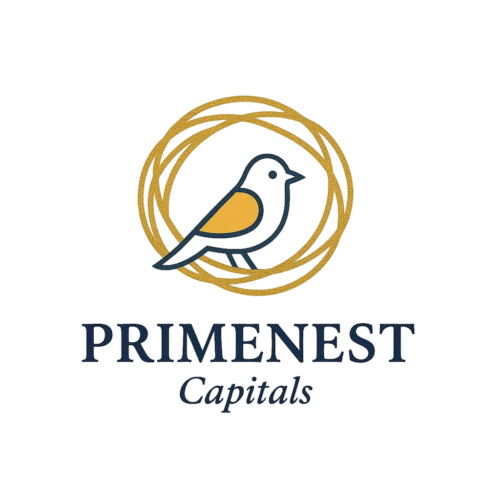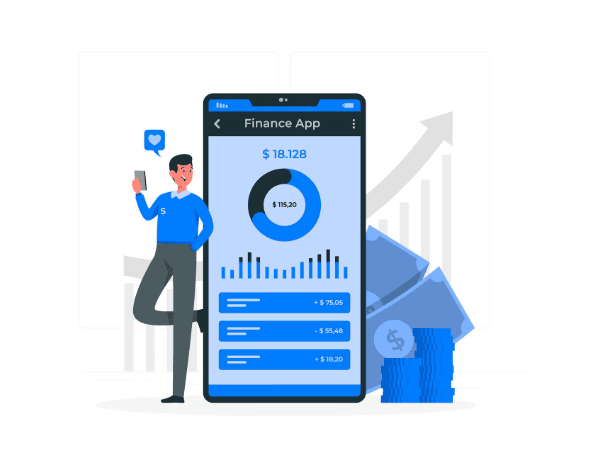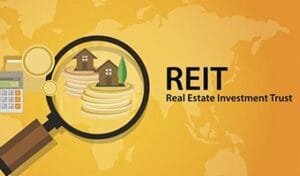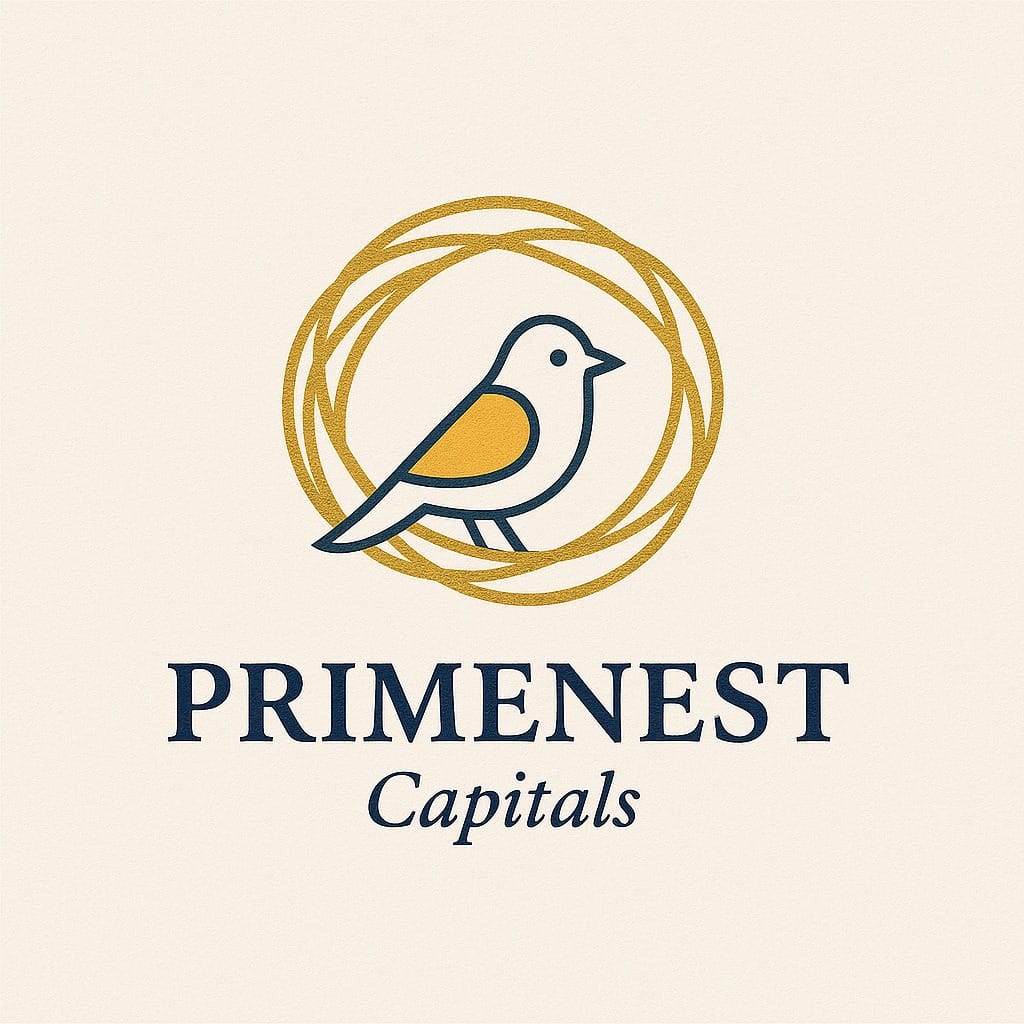The real definition of success isn’t how much you have but the way you manage your assets in the form of money.
A lot of people find it very difficult to be accountable for their money at the end of the pay period. You receive your wages or salary, and it’s gone into thin air like it never existed.
The reason why you are still broke is that you don’t know how to manage your money.
You might be earning $5000 as wages, but if you don’t know how to manage it, you might end up drowning in the ocean of debt.
I have a friend who makes peanuts compared to what we were earning, but this dude was able to pull a stunt on us by buying a house.
How did he do this?
We were gobsmacked. When he showed us the secret to managing money, our mouths refused to close cos we didn’t expect it to be that simple.
Managing your money is as simple as making pancakes.
One of the key points is the financial app.
Yes, I know you like being expressive by mapping out your plan on paper, but what if that can be automatically done without stress and errors?
Let’s journey together on the best financial app that can help you manage your money without leaving your comfort zone. Let’s take a look at why you need to manage your money.
Why Manage Your Money When you can Spend it?
1. Financial Security & Survival:
To ensure you can afford necessities like housing, food, utilities, healthcare, and transportation.
Emergency Preparedness: At times, life throws you off balance with unexpected events that capsize you and render you hopeless.
Managing your money allows you to build savings (an emergency fund) to cover unexpected expenses like car repairs, medical bills, or job loss without resorting to debt or hardship.
2. Avoiding Debt & Financial Stress:
Preventing Overspending: Tracking income and expenses helps you live within your means, avoiding reliance on high-interest credit cards or loans.
Reducing Anxiety: Knowing where your money goes and having a plan significantly reduces financial stress and anxiety, improving overall mental well-being.
3. Achieving Life Goals:
Short-Term Goals: Enables you to save for vacations, a new gadget, or a down payment on a car.
Long-Term Goals: It is essential for major milestones like buying a home, funding education (yours or your children’s), or starting a business.
Retirement: Makes consistent saving and investing for retirement possible, ensuring you have the resources to live comfortably when you stop working.
4. Building Wealth & Financial Freedom:
Making Money Work for You: Allows you to allocate funds towards investments (stocks, bonds, real estate) that grow over time through compounding returns.
Creating Options: Financial resources provide choices and freedom – the ability to change careers, take calculated risks, travel, retire early, or support causes you care about.
5. Protecting Against Inflation:
Preserving Purchasing Power: Inflation erodes the value of cash over time. Managing money includes strategies (like investing) to help your savings grow faster than inflation.
Why Use Finance Apps?
Finance apps are generally considered superior to traditional methods (like spreadsheets, paper ledgers, or just mental tracking) for managing money due to several key advantages:
1. Automation & Efficiency:
Automatic Transaction Import: Most apps connect directly to your bank accounts, credit cards, and investment accounts, pulling in transactions automatically.
This eliminates the tedious, error-prone task of manual entry. Apps automatically categorize transactions (e.g., groceries, dining, utilities), saving significant time and providing instant insights. You can easily recategorize if needed.
Bill Reminders & Alerts: Set up automatic reminders for upcoming bills and receive alerts for low balances, large transactions, or suspicious activity.
Recurring Expense Tracking: Easily identify and track regular subscriptions and recurring payments.
2. Real-Time Visibility & Awareness:
Consolidated View: See all your financial accounts (checking, savings, credit cards, loans, investments) in one place. No more logging into multiple bank websites.
Up-to-Date Balances: Get instant updates on your account balances and net worth as transactions occur.
Immediate Spending Feedback: See exactly where your money is going as you spend it, fostering greater awareness and helping curb impulse purchases.
3. Deeper Insights & Analysis:
Visualizations (Charts & Graphs): Easily digestible charts show spending patterns by category, merchant, or period. Pie charts, bar graphs, and trend lines make complex data simple.
Trend Identification: Spot spending trends over weeks, months, or years. Identify areas where you consistently overspend.
Customizable Reports: Generate detailed reports on income vs. expenses, net worth changes, or spending in specific categories.
Cash Flow Analysis: Understand your true income and expenses to see if you’re living within your means.
Key Considerations When Choosing Finance Apps
1. Your Primary Goal: Budgeting? Debt payoff? Investing? Net worth tracking? Couples?
2. Budgeting Style: Zero-based (YNAB, EveryDollar)? Envelope (Goodbudget)?
3. Flexible tracking (Monarch, Simplifi)?
Cost: Are you willing to pay for premium features? Free apps often have limitations or ads.
4. Account Linking: Does it support all your banks/institutions reliably (check Plaid/Yodlee coverage)?
5. Security: Look for strong encryption (256-bit), read privacy policies, and enable 2FA.
Tips Needed in Managing Your Money Through Financial Apps
1. Start Simple: Don’t overwhelm yourself. Pick one core app (like Monarch or YNAB) and master it.
2. Security First: Use strong, unique passwords and enable multi-factor authentication (MFA).
3. Consistency is Key: Regular check-ins (weekly or bi-weekly) are more effective than monthly deep dives.
4. Link with Caution: Understand the risks of linking financial accounts. Only use reputable apps.
5. Combine Apps: Use Empower for investments/net worth alongside YNAB for strict budgeting.
Best Personal Finance Apps To Manage Your Money
Top All-in-One Budgeting & Tracking Apps (Mint Alternatives)
1. Monarch Money
Best For: Comprehensive replacement for Mint, couples/families, customizable budgeting, net worth tracking.
Key Features: Beautiful UI, connects all accounts (banks, credit cards, loans, investments), customizable rules & categories, collaborative tools, robust reporting, goal setting, subscription tracking. Subscription required ($14.99/mo or $99/yr).
2. Empower (Formerly Personal Capital)
Best For: Focus on net worth tracking & investment analysis alongside budgeting.
Key Features: Excellent dashboard for investments (holdings, allocation, fees), cash flow tracking, retirement planner, budgeting tools (less detailed than others), and bill tracking. Free core features; Wealth Management services available.
3. Simplifi by Quicken
Best For: Proactive budgeting, clear visualizations, and avoiding overspending.
Key Features: “Spending Plan” approach, watchlists for spending categories, income/expense projections, customizable reports, savings goals, and bill reminders. Subscription required ($3.99/mo billed annually).
Top Zero-Based Budgeting Apps (Envelope System Style)
4. YNAB (You Need A Budget):
Best For: Getting out of debt, strict budget discipline, and proactive money management.
Key Features: True zero-based budgeting (every dollar has a job), rule-based automation, detailed reporting, goal tracking, strong educational resources, and debt payoff tools. Subscription required ($14.99/mo or $99/yr).
5. Goodbudget
Best For: Envelope budgeting digitally, couples/families sharing expenses, simplicity.
Key Features: Digital envelope system, syncs across devices for shared budgets, tracks debt/savings goals, and expense tracking. Free version limited; Plus version ($8/mo or $70/yr) offers more envelopes & history
The “best” app is the one you’ll use consistently that aligns with your specific financial goals and style. Try out a couple that seem like good fits (many offer free trials or free tiers) and see what clicks!





